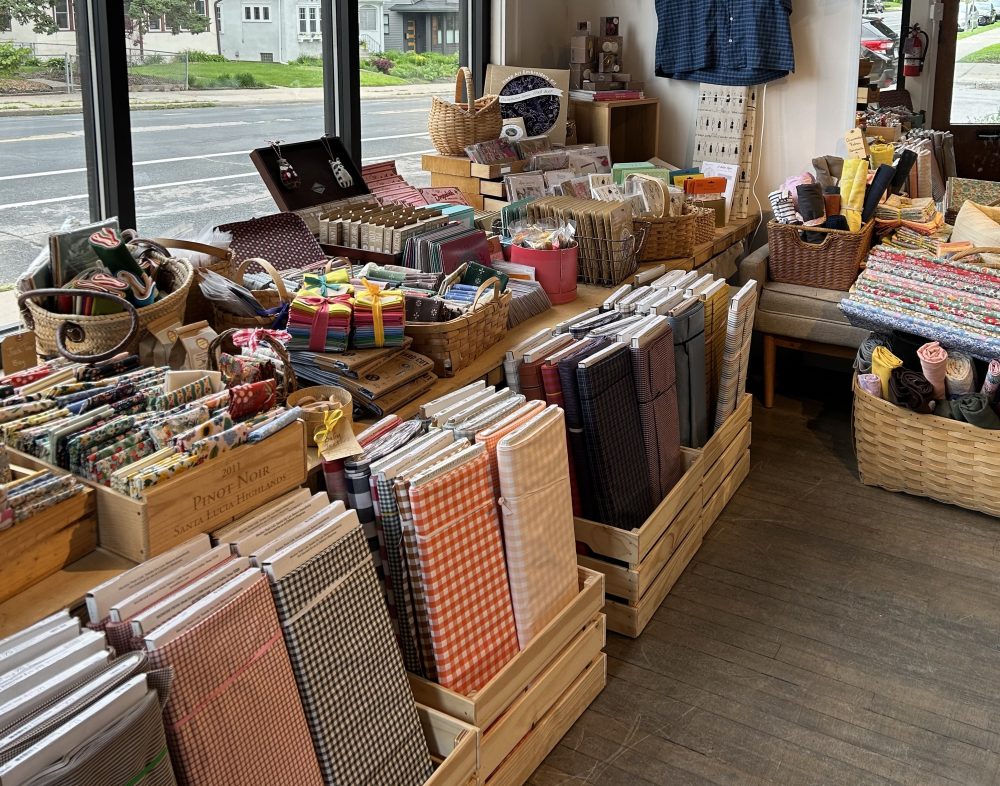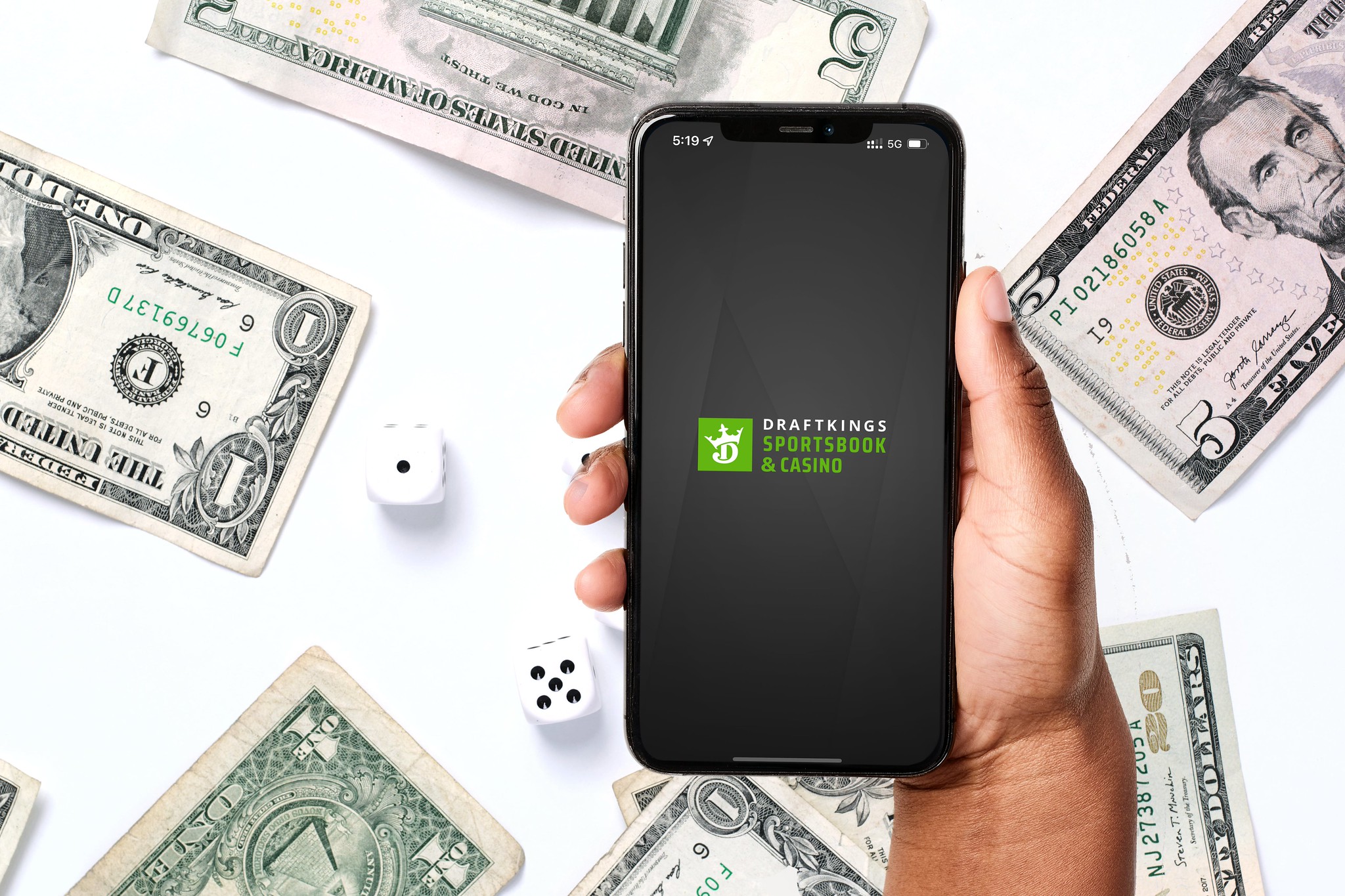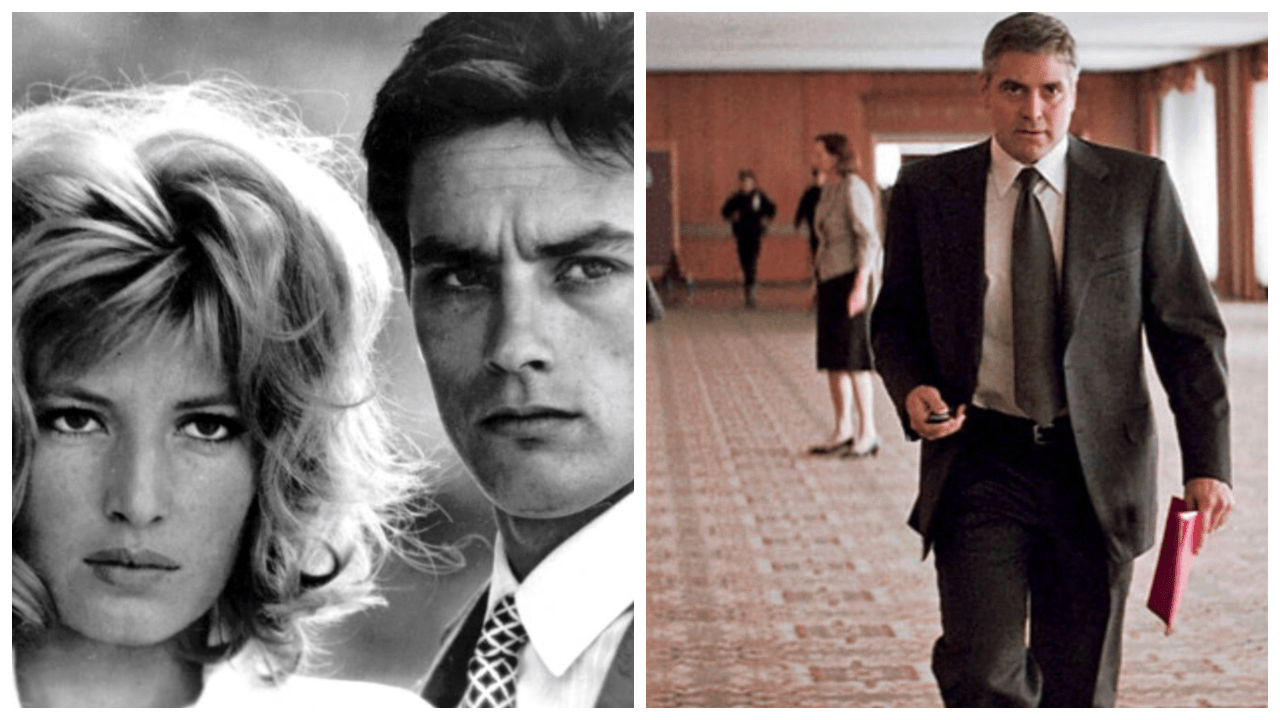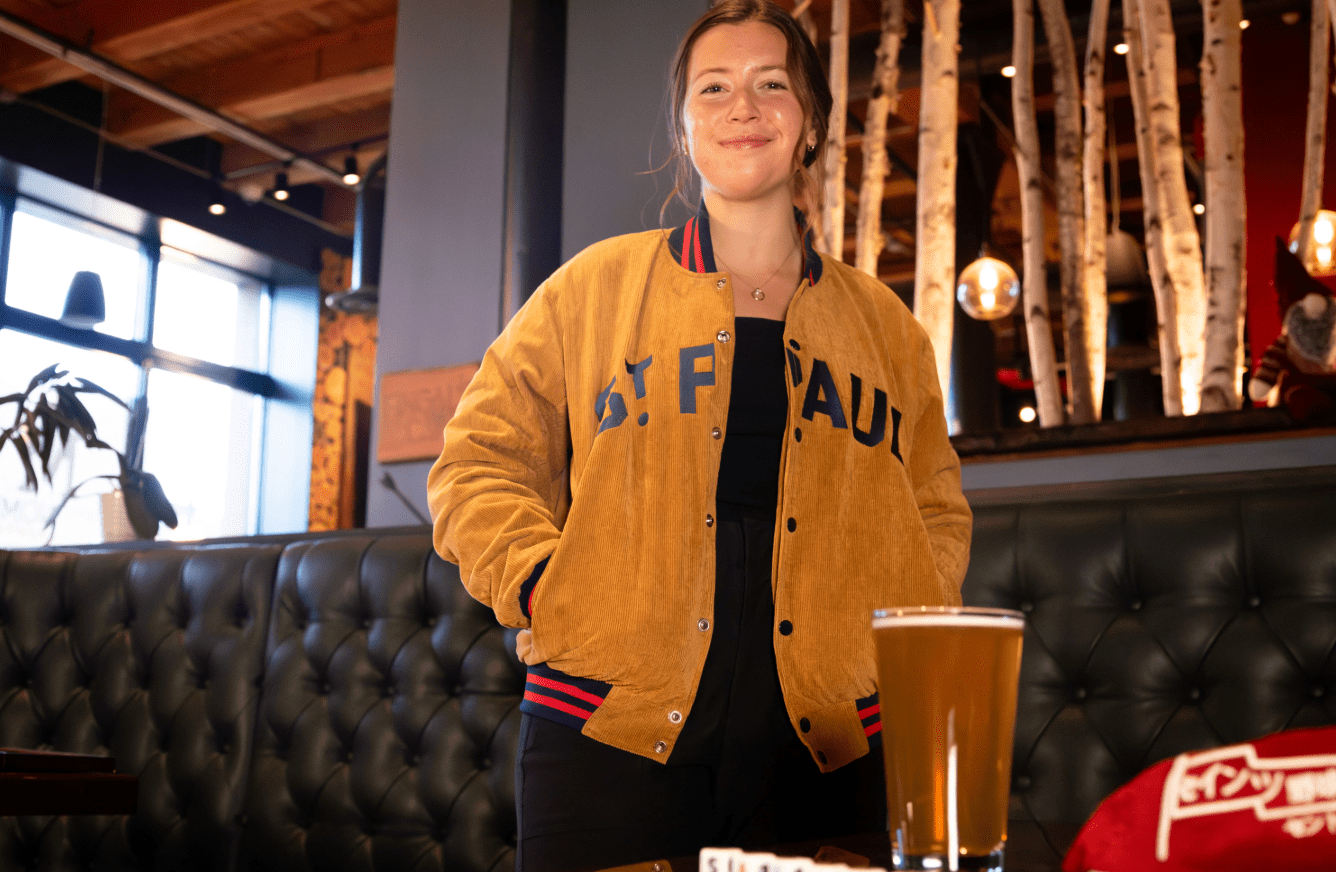When I was 13, my best friend and I googled “fun things to do at a sleepover.” The number one suggestion was to make a tie blanket. My mom took us to the craft store just before closing to buy yards of patterned fleece: mine a dark blue paisley, my friend’s a cartoon succulent pattern.
Learning how to make a tie blanket has served me well. In high school, I spent an evening cutting, tying, and stretching fleece into blankets to donate to a nearby nursing home. When I worked at a summer camp, my cabin of fifth grade girls chose a pattern with yellow labradors on it for a small tie blanket to be donated to a local animal rescue. (I didn’t tell the girls that our dog-patterned blanket was actually going to a turtle in rehab.)
No matter how many times I’ve made a tie blanket—which seems abnormally frequent—the fleece was purchased at JOANN Fabric and Craft Store. It has always seemed the most convenient, economically reasonable choice for craft supplies.
In 2024 JOANN became the latest corporate victim of private equity, as investors squeezed the company for cash and drove it into bankruptcy. This February came the announcement of company-wide store closures.
So, uh, now what? Where will I go if I have to make another fleece tie blanket? What about your grandmother and the cozy quilts she makes? Or that one person who sews their own clothes and has the ultimate one-of-a-kind wardrobe? What about the beginners who have no idea where to start a sewing project but have the motivation to get behind a machine and stitch?
These are four Twin Cities textile stores to shop at now that JOANN is gone. (And really, shopping local is better anyway.) I’ll be breaking down what type of sewing each store caters to best, tips and tricks for shopping there, a bit of advice for amateur sewers, their origin story, whether JOANN closures affected business, and how upcoming or existing tariffs on the textile industry are impacting business.
For a Little Bit of Everything Sewing…
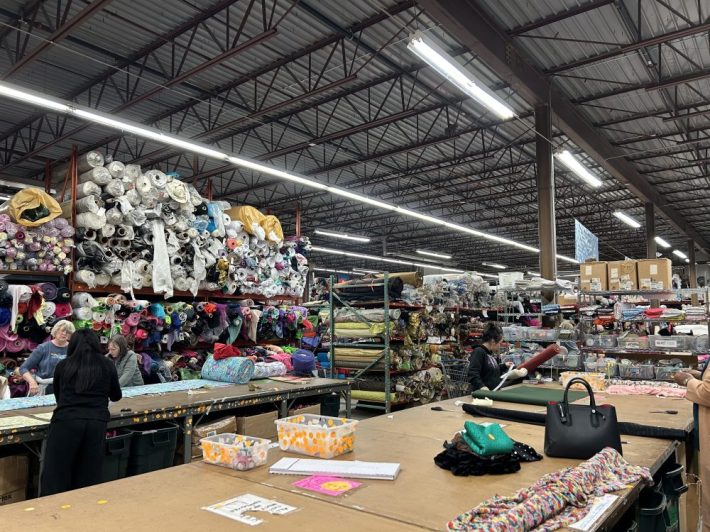
SR Harris Fabric
Locations: 8865 New Zealand Ave. N., Brooklyn Park (warehouse store location) and 3715 Hwy 13 W., Burnsville; srharrisfabric.com
Cost: $-$$
The stock: Due to the store's inventory of mainly deadstock and promotional textiles, SR Harris is a relatively financially accessible option. They offer heavily discounted fabric of all kinds by the yard and reduced prices on ribbons, trims, buttons, and more. Owner Scott Harris intentionally chooses deadstock fabric in order to “be more of a discount fabric store.”
The lore: Harris’s father, who was in the seam splitting and bias binding industry, opened SR Harris Fabric in 1966. As manufacturing increased and garment making largely moved to the East Coast and beyond, the store evolved to include fabric selling. They’ve been at their Brooklyn Park warehouse location for 40 years. Scott opened a second location in Burnsville about 12 years ago after he saw how overwhelmed some customers were in the warehouse space.
“My father gave me an opportunity … I am proud,” Harris says. “I feel it’s a really unique store. It’s set up differently, and we try very hard to keep it clean and make it an enjoyable shopping experience for all.”
What to know before you shop: If you’re purchasing under five yards of fabric at the BP location, you get to measure and cut your own fabric (employees are still available to assist and to accommodate folks with mobility restrictions). Any fabric longer than five yards gets cut by employees. The Burnsville location cuts all fabric for you.
“It can be overwhelming for the first time shopper, there's a lot here,” says Harris. “You can come in here looking for a specific thing and it’s very likely you may find it. Come in with an open mind and just take it all in.”
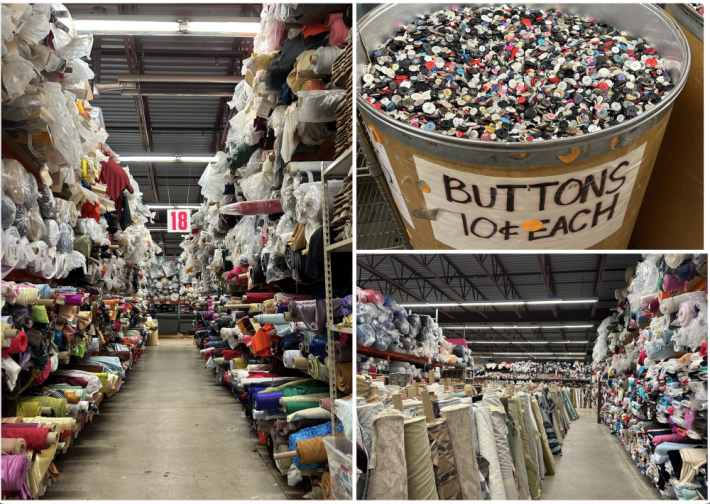
What it does best: SR Harris has textiles for home decor, fashion apparel, and quilting as well as pillow forms, foams, and batting. In the Brooklyn Park warehouse store, fabrics are organized by sections according to textile varieties: cotton, silk, flannel, linen, leather, upholstery, draperies.
Most fabrics are further organized in aisles by type. The silk aisle is divided by varieties of chiffon and satin while the cotton aisles have patterned, plaid, and velvet sections. Leather and fur in faux and real options are available in addition to notions like thread, buttons, ribbon, zippers, and scissors.
“I don’t think I really specialize in anything,” says Harris. “I feel that we carry all aspects of fabric in general, whether it be home dec, apparel, or quilting and crafting. I think that sets me apart because I try to bring it all under one roof.”
Impact of JOANN closure: “I was busy before, but as soon as they mentioned they were closing, it got a lot busier,” says Harris. “I don’t know if that’s because they ran out of certain things or why.”
Tariffs? Harris is expecting tariffs to have some impact, as he does import some items. But he already has a lot of stock on hand. “[The tariffs are] not going to affect my fabric prices. At least, I don’t expect them to,” he says. “But time will tell.”
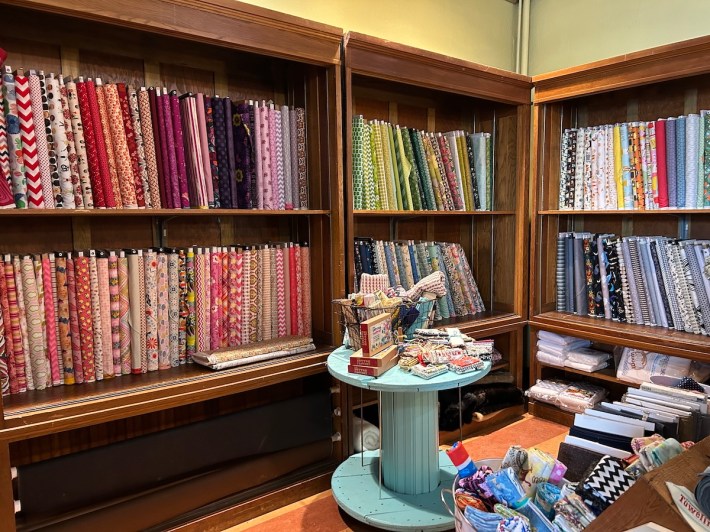
Digs
Location: 3800 Grand Ave. S., Minneapolis; shopdigs.com
Cost: $$
What Digs does best: Shop owner Katie Koster prides herself on carrying unique textile options and vintage remnants. Digs carries fabric for apparel, home decor, quilting, and general crafting supplies like yarn. Don’t expect kitschy supplies like a Minnesota Vikings patterned fabric however; Digs doesn’t carry them, and that's on purpose. But you will find everything else here.
“I have everything you might need, the basics … I sell individual buttons so if they just need one button, they’re not buying a whole pack. I’ve got remnants for everyone,” she says.
The lore: Koster bought Digs from the original owner when the store moved from Northfield to Minneapolis in 2014. The shop started out primarily upholstery minded, but after Koster purchased the store, she added variety to their inventory. Now, Digs is a combination of a gift store featuring handmade items from local makers and all things sewing with a curated collection of vintage notions like buttons and trim.
“I think a lot of my customers are either quilters or people who are just trying to get into it; a lot of people mending and trying to repurpose rather than buy new,” she says. “I think that’s why people love all the vintage notions because it’s getting repurposed, not thrown away.”
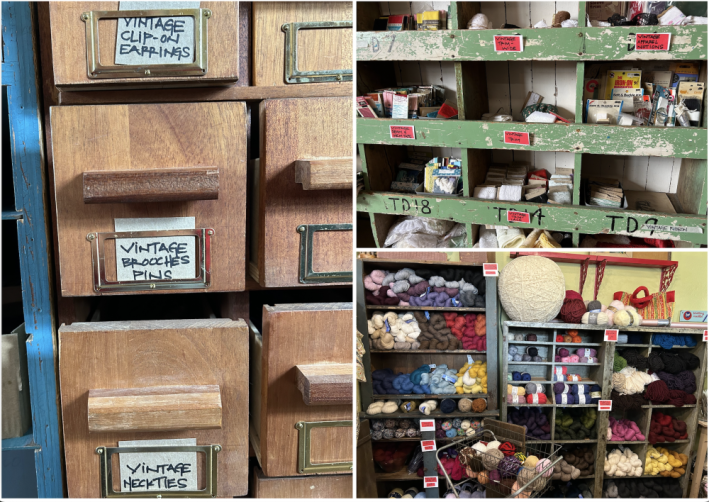
What to know before you shop: Coming into the store with a plan of what you want to create is never a bad idea, but Koster also encourages folks to come in with a clean slate open to ideas. She’s knowledgeable in textile projects and willing to help, advising customers to start at the notions wall to find the things they need to get inspired.
“If [someone] is a total newbie, I’d suggest starting with an apron, a curtain, or a tote bag—just something to mess around with until you feel confident,” Koster says. “Don’t dive down into a button shirt with a collar, pleats, or stuff like that. Do it gradually.”
Impact of JOANN’s closure: “A lot of people are realizing that they’re going to have to find alternatives—and the alternatives are great,” says Koster. “It’s funny to me, because fabric stores declined so much because JOANN ate them all up. Now everyone is wondering where all the small stores are.”
Tariffs? Koster has received some emails from wholesales, specifically yarn sellers, about increasing prices because of tariffs. Next, she is expecting notions to be “highly affected,” as well as fabric.
“I’m nervous … I’m anticipating the availability of getting stuff [to be affected]. With fabric, you order it now but you get it two months later. That could be extended even further,” Koster says. “Small places can’t plan like that.”
For Fashion Apparel/Garment Sewing…
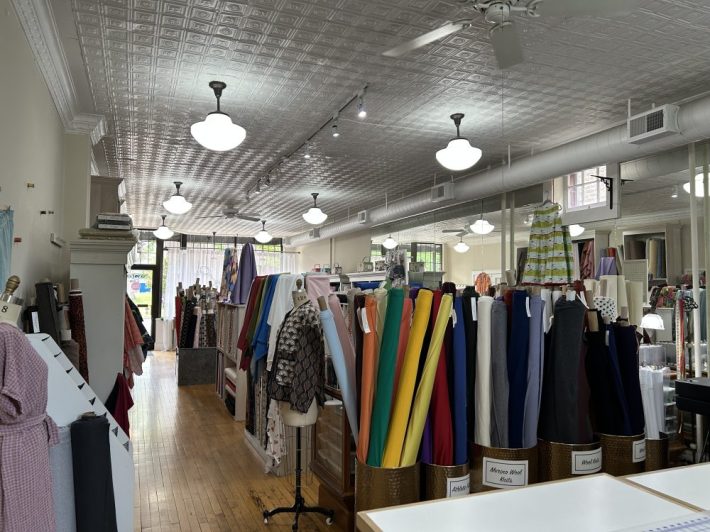
The Sewing Lounge
Location: 987 Selby Ave., St. Paul; sewinglounge.com
Cost: $$
What The Sewing Lounge does best: This “little fabric shop in the heart of St. Paul” specializes in natural fiber and fabric for apparel making, from cottons to knits to rayon. Notions are organized throughout the store with a section for buttons, thread, and more, and there’s a variety of sustainably made fabric, too.
In addition to in store patterns for purchase, they also offer pattern printing on their large-scale printer. PDFs of a pattern can be emailed to the store and will be printed on 36” paper.
“I’m proud of having quality fabric and a welcoming environment. People tell me it feels peaceful here, and I like that,” says co-founder/owner Maggy Schneider. “It’s sort of a haven.”
The lore: Schneider initially started The Sewing Lounge 20 years ago as a purely instructional facility. She taught classes, hosted workshops, held open sewing hours, and organized specialized camps for children. But that all changed about 12 years ago when “it was clear that Youtube was here to stay and my classes weren’t filling,” Schneider says. Since then, the store has evolved to selling fabric and notions while still offering occasional classes with staff member and technical designer, Izzy Winegar.
What to know before you shop: Schneider likes to be hands-on in the shopping process if needed, so she will gladly help you choose a fabric best fit for your project, do measurements, and offer her expertise. For amateur sewers not knowing how to begin, she advises that people start with cotton because it’s “the friendliest fabric to work with.”
“Keep it simple, because anything is possible given enough time but you’re going to burn out on it before you even finish when it goes on and on and on,” Schneider says.
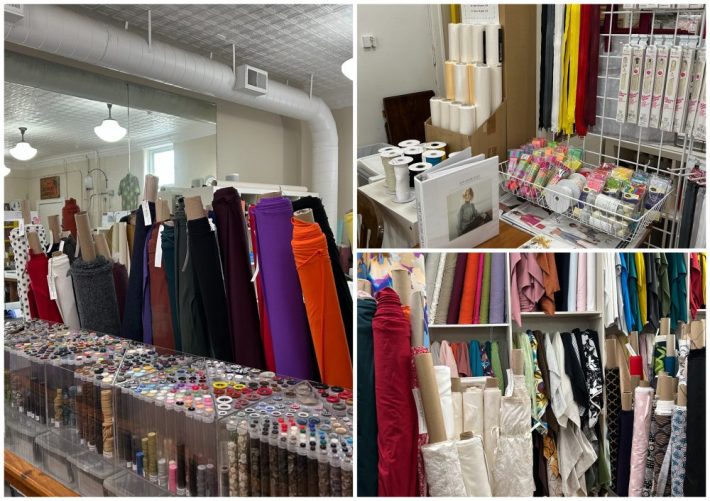
Impact of JOANN’s closure: When JOANN announced bankruptcy this winter, Schneider noticed an increase in store traffic and sales right away. But that has been tapering off, which she chalks up to tariffs and general economic uncertainty.
“Everything is going up. If you have to buy groceries and pay your mortgage, I don’t know if fabric is going to make it on the list,” she says.
Tariffs? “I think if they stay in place, then we’re going to see empty shelves,” she says. “Every time I sell a notion, I look to see the country of origin. One of my suppliers has already said they are going to put a pause on some products. We’re just so interconnected and it’s hard to make plans because it’s so uncertain. It’s hard, but what are you going to do?”
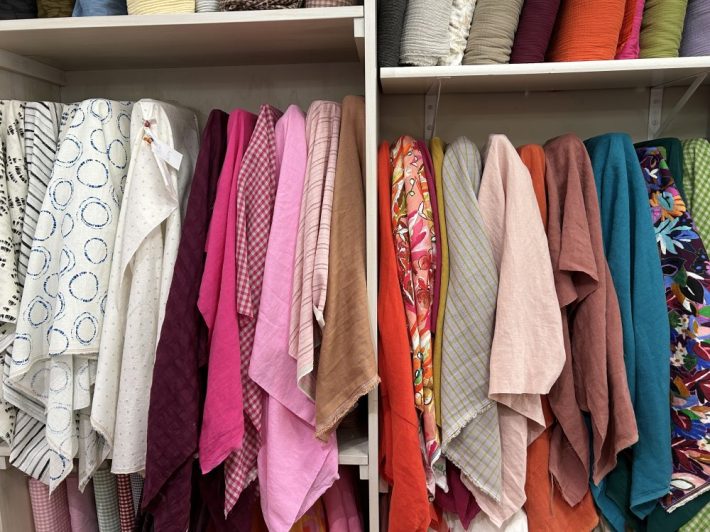
Lakes Makerie
Location: 5257 Chicago Ave., Minneapolis; lakesmakerie.com
Cost: $$$
What Lakes Makerie does best: Their inventory is primarily fabrics, notions, and tools for garment making. Some of their textiles, like linen, could be used for home decor projects, but staff know fashion sewing best. They also offer pattern printing, classes, and have an updated website to make online purchases that ship worldwide.
What to know before you shop: Lakes Makerie’s inventory mainly consists of fabric made in Germany, Italy, France, England, and Japan, where the quality is higher and thus more expensive. Owner Sarah Vernon says most people “love [the shop’s specificity] because they can come in and find what they want more quickly.”
“Employees are encouraged to wear things they’ve made to work,” says Vernon. “A lot of the difficulty [of sewing] is picking the right pattern and right fabric to go together to make something that will turn out the way you want. I think people, when they’re learning, can make mistakes because they don’t understand drape, body, fluidity, and all these terms that are used to describe fabric … our staff can say, ‘Mm, maybe not that fabric with that pattern?’ or give suggestions to set people up for success.”
The lore: For years, Vernon worked as a burned out interventional cardiologist. Wanting a change, she opened a sewing store. Nine years ago, she moved into a tiny shoebox space, then directly next door to a larger space before finally acquiring both for the shop. The small space is designated for classes and “making a mess,” while the larger space is the storefront.
“What I really wanted was to establish a community,” Vernon says. “Our customers are not sewing to save money, because most clothes are already so cheap. It’s not like you’re saving money [by sewing your own clothes]; you have to enjoy the process, enjoy making something that’s uniquely yours, or that fits a hard to fit body. They’re sewing for those reasons: it’s a skillset, a craft.”
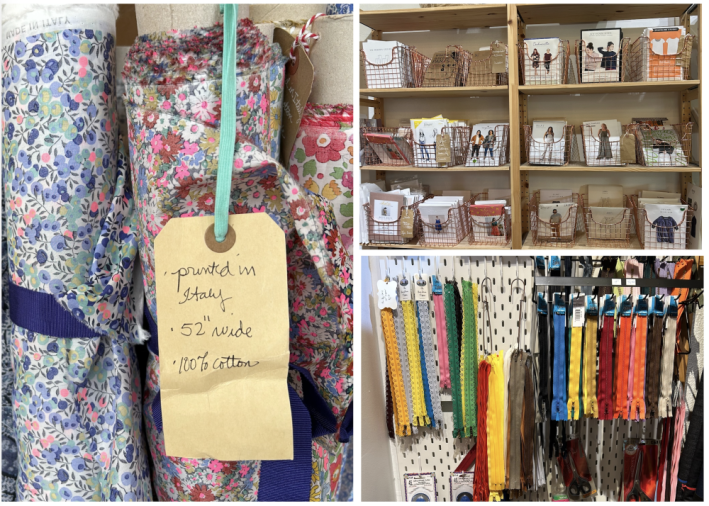
Tariffs? Lakes Makerie already weathered issues fulfilling their inventory during COVID. So while tariffs are impacting their business, they were prepared.
“Because we’ve been dealing directly with buying things from distributors and vendors from other countries, we’re a lot more used to it than a lot of people who maybe just buy from a U.S. distributor and don’t know what’s happening with duties,” she says. “We were accustomed to paying tariffs. What we are not accustomed to is paying 50%, then back to 10% broadly on everything, and then maybe 50% on the EU in July. It’s creating chaos. We’ve bought a lot in anticipation of tariffs. We just stocked up.”
